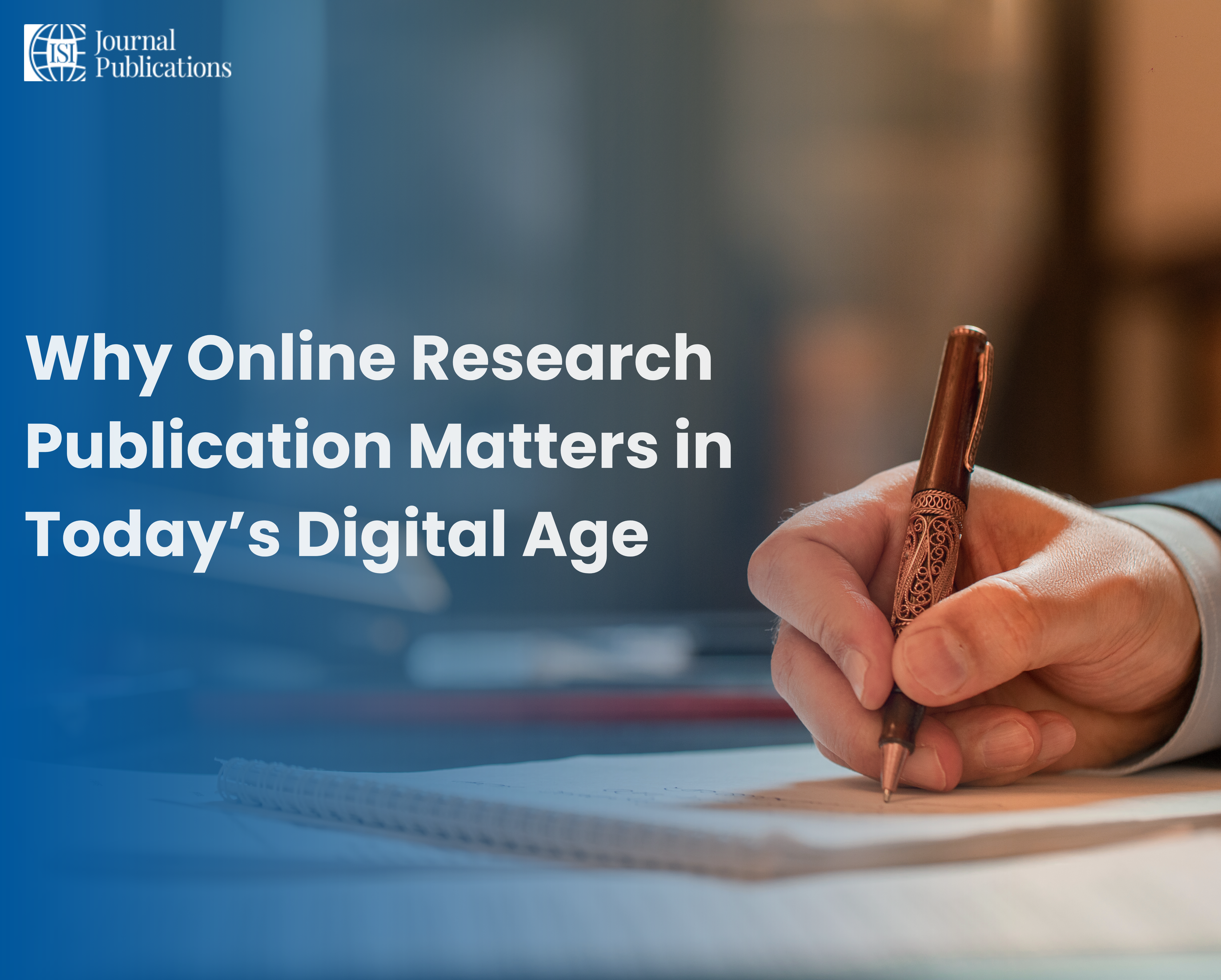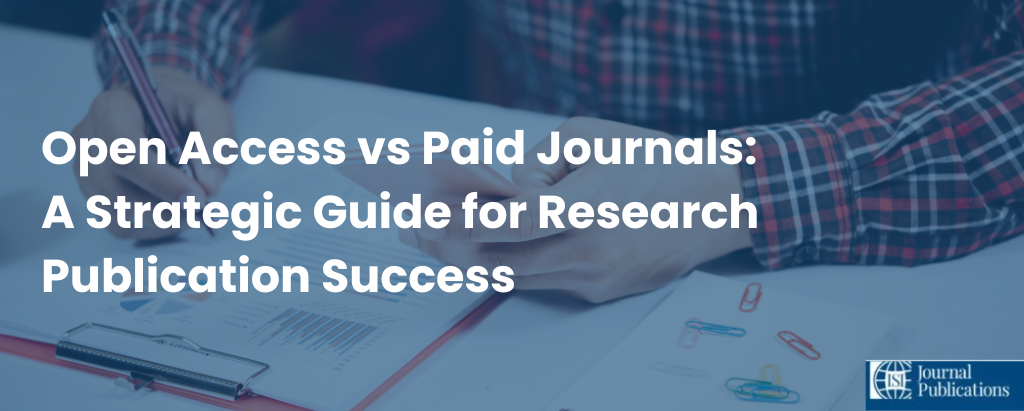Disseminating research has been transformed by the digital age, much like almost every other part of life. Online research publication has replaced traditional print publishing as the main channel for disseminating intellectual knowledge. Researchers now have more ways than ever to effectively and extensively disseminate their findings because to this shift. It is essential to comprehend the significance that internet platforms play in contemporary scholarship as they continue to grow. This document examines the advantages and disadvantages of the move to digital research dissemination as well as the prospects for online research publication. Continue to read and explore the document by ISI Journal Publication accordingly.
The Shift To Online Research Publication
The need for more effective knowledge transmission and technology improvements have fueled the shift from traditional print publication to digital media. In the past, academic material was shared and accessed by researchers through print periodicals and libraries. However, the internet has altered this landscape by facilitating rapid publication and global dissemination.
Scholars may now share their work more easily because of the growth of online publications and research repositories. As a result, there are several platforms that provide scholars worldwide with essential tools. To meet the increasing demand for online accessibility, well-known journals have also adjusted by providing open access publishing and digital versions.
Publications have increased as a result of the growth of digital forms, guaranteeing that knowledge reaches a wider audience. This transition represents a significant revolution in scholarly communication, enabling more rapid communication and inclusive research dissemination.
Benefits Of Online Research Pubication
Increased Accessibility
Online research publication has greatly improved the key to learning. Unlike conventional image journals, which usually need costly subscriptions, online fora, especially open-access enterprises make research paper editing services willingly unrestricted to a global audience. This releases economic barriers, allowing students from developing countries, independent scholars, and the general public to access cutting-edge studies.
Faster Dissemination
Digital age research has accelerated the research dissemination strategy. Standard publishing concerns long peer assessment and print holds while online methods allow rapid peer review, preprint releases, and rapid publication. Preprint servers enable students to communicate findings before traditional peer review, enabling timely knowledge Sharing and decreasing monotony in research efforts.
Enhanced Visibility and Impact
Academic publishing online improves its visibility and acquisition. Digital research platforms permit writers to connect with audiences further in academia, including policymakers and enterprise experts. Metrics like downloads, citations, and social media comments, followed via tools deliver real-time insights into a study’s influence and impact.
Global Collaboration
The internet has changed research accessibility into a coordinated multinational action. Hence, various platforms help writers to share ideas, pursue feedback, and co-author documents remotely. Crowdsourced initiatives and open data-sharing further improve cooperation, driving innovation and multidisciplinary analysis. Thriving tasks like the Human Genome Project and CERN’s particle physics analysis emphasise the control of digital connectivity in increasing scientific progress.
Challenges Of Online Research Publication
Online research publication has many benefits, but it also has drawbacks. Upholding strict peer review and quality control is one of the fundamental issues. Academic credibility is being undermined by predatory journals that lack adequate editorial monitoring as a result of the quick growth of digital publishing.
Furthermore, it is challenging for academics to locate reliable and pertinent studies due to the deluge of internet research. Overwhelming amounts of information can confound literature assessments, digital age research and dilute important contributions.
The digital gap, which results in differences in access to internet research, is another issue. Even if open access publishing have increased accessibility, paywalls, internet connectivity, and a lack of institutional support may still be problems for researchers in areas with little resources.
Enforcing strict peer review guidelines, enhancing digital literacy, and extending fair access to academic resources are all necessary to meet these issues. The future of online research impact depends on finding a compromise between quick distribution and preserving the credibility of the research.
The Future Of Online Research Publication
There is a definite expectation for even more disruption with the online research publication industry. New technologies like preprints servers which enable researchers to share their findings with the general public before formal peer review takes place are already contributing to this disruption.
The use of Artificial Intelligence (AI) is also transforming the industry. Its ability to automate the peer review process, plagiarism checks, and smart indexing for better discoverability has changed the publishing industry for good. Blockchain technology might provide the necessary tools for authorship verification and conducting integrity checks.
The developments in the field of digital publishing will inevitably have deepening effects on research activities within educational institutions. It is upon scholars, academic institutions, as well as publishing houses to conceptualize the structure of scholarly communication in a way that deals with the challenges of trust, transparency, and the overall credibility and efficiency in the digital ecosystem.
Conclusion
Publication of research accessibility online has transformed the spreading of scholarly communication with greater accessibility, quicker spreading, greater visibility, and global coordination. There are challenges of quality control, information overload, and digital divide, though, which need to be overcome for full benefits to accrue.
As technology evolves, the future of digital research platforms promises to be a thrilling prospect, ranging from peer review using artificial intelligence to decentralized verification using blockchain. Researchers, institutions, and policymakers need to understand and adopt these developments.
Through participation in online publishing trends, researchers are able to bring about a more interconnected, diverse, and streamlined academic publishing and influence the destiny of knowledge distribution in this digital age research.















